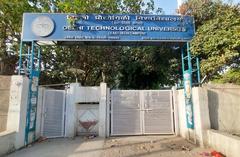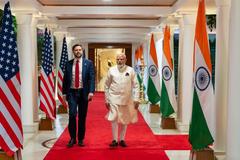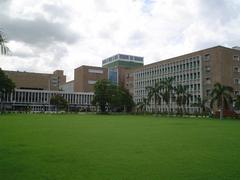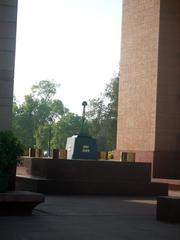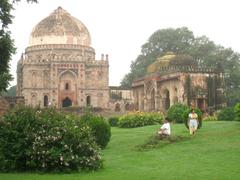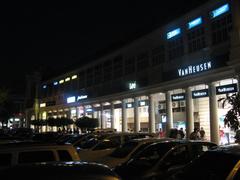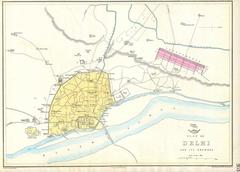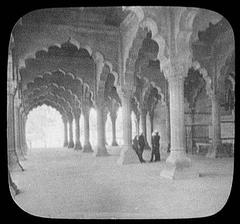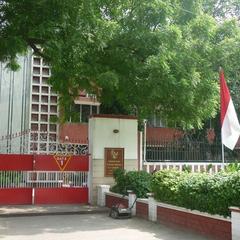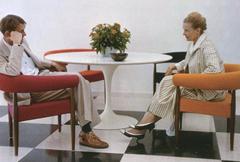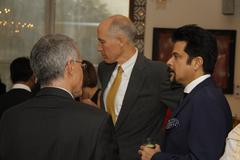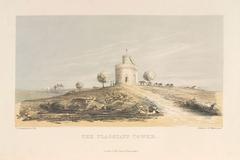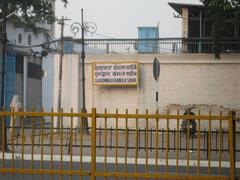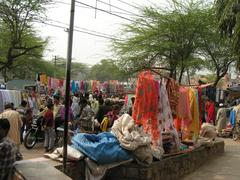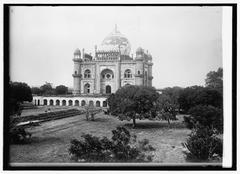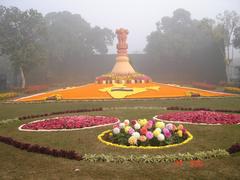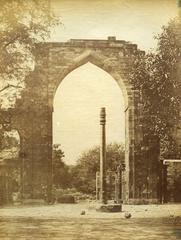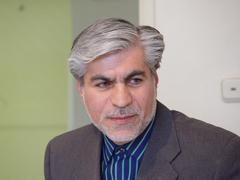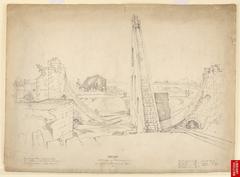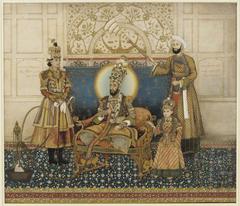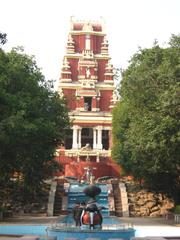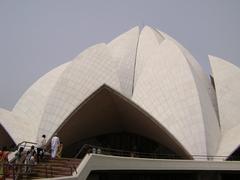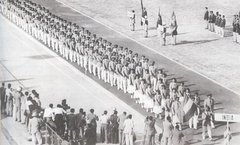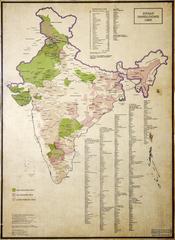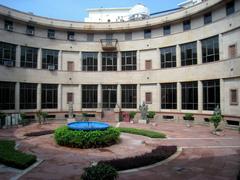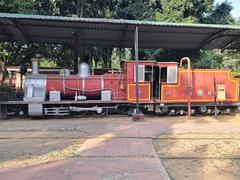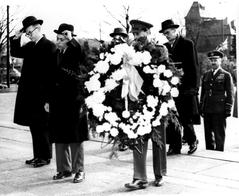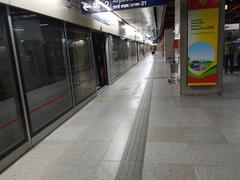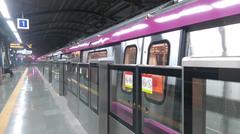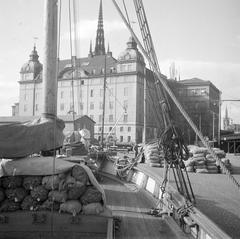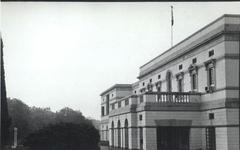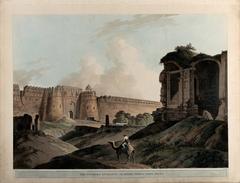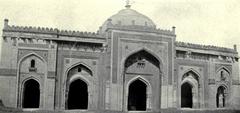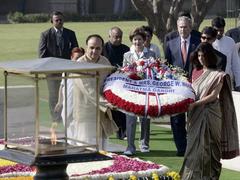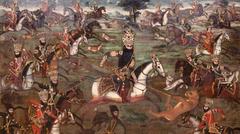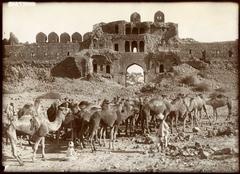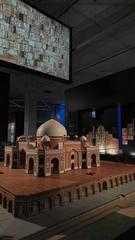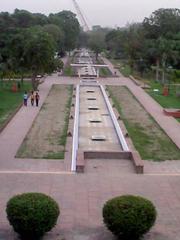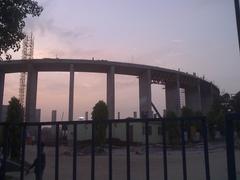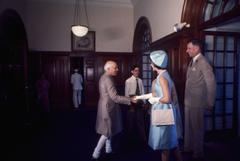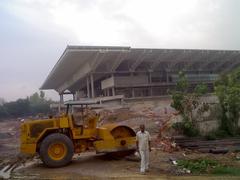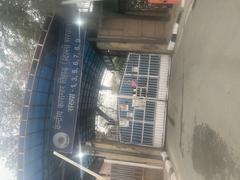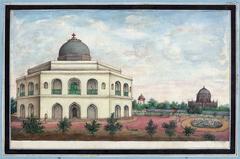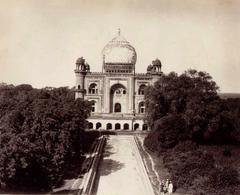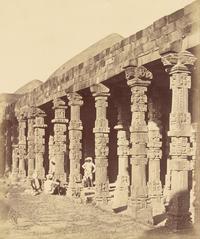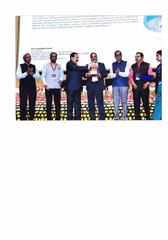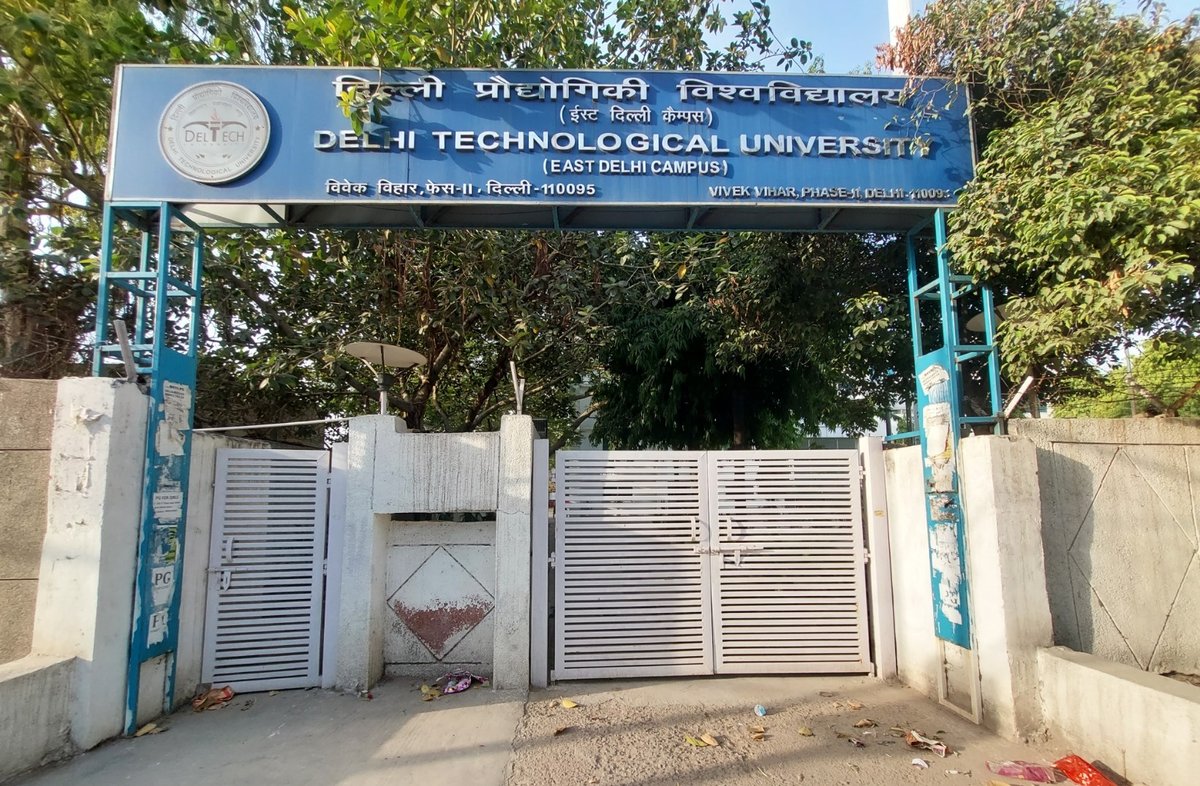
Delhi Technological University Visiting Hours, Tickets, and Guide to New Delhi Historical Sites
Date: 14/06/2025
Introduction to Delhi Technological University and Its Significance
Delhi Technological University (DTU), located in North-West Delhi, is one of India’s premier engineering and technology universities. Established in 1941 as Delhi Polytechnic, DTU has undergone significant transformations in its more than eight decades of existence, evolving into a multidisciplinary institution recognized for academic excellence, pioneering research, and vibrant campus life. Spanning a 164-acre campus on Bawana Road, DTU’s blend of innovative academic facilities, green spaces, and a thriving cultural scene makes it a cornerstone of Delhi’s educational landscape (GetMyUni; Delhi Technological University Campus Guide).
This guide provides an in-depth look at DTU’s history, academic evolution, campus highlights, and practical visitor information. Whether you are a prospective student, researcher, tourist, or simply interested in Delhi’s educational and historical sites, this resource will help you make the most of your visit.
Table of Contents
- Introduction
- Founding and Early Years (1941–1962)
- Transition to Delhi College of Engineering (1963–2008)
- Attainment of University Status: The Birth of DTU (2009–Present)
- Academic and Research Growth
- Infrastructure and Campus Facilities
- Cultural and Social Life
- Admissions and Placement Highlights
- Alumni Network and Recognition
- Visitor Information
- Nearby Attractions
- Frequently Asked Questions (FAQ)
- Conclusion and Call to Action
- References
Founding and Early Years (1941–1962)
DTU began its journey as Delhi Polytechnic in 1941, established by the Government of India to address the growing demand for technical education during a period of rapid industrialization. Initially located at Kashmere Gate, the institution offered diploma and degree programs in engineering and applied sciences and was affiliated with the University of Delhi. Early departments included Civil, Mechanical, Electrical, and Textile Engineering, laying the foundation for future expansion (GetMyUni).
Transition to Delhi College of Engineering (1963–2008)
In 1963, Delhi Polytechnic was reconstituted as Delhi College of Engineering (DCE), reflecting its elevated status and focus on degree-level engineering education. The college remained affiliated with the University of Delhi and expanded its academic offerings with new departments such as Electronics & Communication, Computer Engineering, and Information Technology. The move to a new, modern campus at Bawana Road in the early 1990s provided the infrastructure necessary for further academic and research growth (GetMyUni).
Attainment of University Status: The Birth of DTU (2009–Present)
A major milestone was achieved in 2009 when DCE was granted university status by the Government of Delhi, becoming Delhi Technological University (DTU). This transition allowed DTU to introduce autonomous curricula, interdisciplinary programs, and advanced research initiatives. As of 2025, DTU comprises 17 departments and offers approximately 80 undergraduate, postgraduate, and doctoral programs across engineering, sciences, management, design, and the arts. The university is accredited with an ‘A’ grade by the NAAC and recognized by UGC and AICTE (GetMyUni).
Academic and Research Growth
DTU’s curriculum is continually updated to reflect technological advancements and industry needs. In addition to traditional engineering streams, the university offers programs in biotechnology, management (USME), and interdisciplinary studies. Research is a key focus, with centers dedicated to robotics, renewable energy, artificial intelligence, and nanotechnology. International collaborations with institutions such as CERN and the University of Calgary facilitate joint research, student exchange, and global exposure (GetMyUni).
Infrastructure and Campus Facilities
The Bawana Road campus provides a world-class educational environment. Facilities include:
- Academic Blocks: Modern classrooms, smart labs, and lecture halls.
- Libraries: A central library and 15 departmental libraries offer extensive print and digital resources.
- Research Centers: Specialized labs and innovation hubs.
- Sports Complex: Facilities for cricket, football, hockey, tennis, basketball, and indoor games.
- Hostels and Cafeterias: On-campus accommodation and dining options for students and visitors.
- Auditoriums and Open-Air Theatres: Venues for seminars, events, and cultural performances.
- Green Initiatives: Landscaped gardens, tree-lined avenues, and sustainable practices throughout the campus (GetMyUni).
Cultural and Social Life
DTU is known for its lively cultural scene. Major festivals such as Engifest, Yuvaan, Innova, and Kalakriti attract participants from across the country, showcasing talents in music, dance, theatre, and the arts (GeeksforGeeks). The university’s student societies, technical clubs, and community outreach programs foster leadership, innovation, and social impact.
Admissions and Placement Highlights
DTU’s admissions are highly competitive. Undergraduate seats are filled primarily through JEE Main, while postgraduate programs require GATE or university entrance exams. The university maintains a strong placement record, with top recruiters offering lucrative packages—reaching up to INR 82.05 lakh per annum for B.Tech graduates in 2023 (GetMyUni).
Alumni Network and Recognition
DTU’s alumni have made significant contributions across engineering, business, academia, and public service. The Student Alumni Cell (SAC) organizes mentorship programs and networking events, helping current students connect with industry leaders and innovators (GetMyUni). DTU consistently ranks among India’s top engineering institutions and is recognized for its research output and global collaborations.
Visitor Information
Visiting Hours
- Open: Monday to Saturday, 9:00 AM to 5:00 PM.
- Note: Check the official website for holiday or special event updates.
Entry and Tickets
- Entry: Free for all visitors; registration required at the main gate.
- Facilities Access: Some areas (e.g., central library, auditoriums) may require prior permission.
Guided Tours
- Available by appointment for prospective students, researchers, and tourists.
- Book via the university’s visitor center or through the DTU website.
Accessibility
- Wheelchair-accessible with ramps and elevators.
- Assistance available upon request for differently-abled visitors.
Campus Highlights
- Academic and Research Buildings: Cutting-edge labs and smart classrooms.
- Libraries: Central and departmental libraries with extensive resources.
- Sports Complex: Facilities for multiple sports and recreation.
- Open-Air Theatres: Venues for cultural events.
- Green Spaces: Landscaped gardens, eco-friendly initiatives, and serene environments.
Travel Tips
- Best Time to Visit: August–May during the academic year for vibrant campus life.
- Dress Code: Modest attire recommended, especially in academic or administrative areas.
- Photography: Allowed outdoors; indoor photography requires permission.
- Transport: Easily accessible by road and public transport, with ample parking available.
Nearby Attractions
Explore Rohini and northwest Delhi’s parks, cultural centers, and historical sites. DTU’s location makes it a convenient base for visiting other notable landmarks across the city.
Frequently Asked Questions (FAQ)
Q1: Is there an entry fee to visit DTU?
A: No, entry is free; just register at the main gate.
Q2: Can visitors access the library?
A: With prior permission, visitors may access the central and departmental libraries for academic purposes.
Q3: Are guided tours offered?
A: Yes, by contacting the visitor center or booking through the website.
Q4: Is the campus accessible for differently-abled visitors?
A: Yes, with ramps, elevators, and additional assistance available.
Q5: When is the best time to visit DTU?
A: During the academic year (August–May) for the fullest campus experience.
Red Fort (Lal Qila): A Timeless Monument of Delhi
Introduction
The Red Fort, or Lal Qila, stands as an enduring symbol of India’s Mughal heritage. Built by Emperor Shah Jahan in the 17th century, the fort is famous for its massive red sandstone walls and stunning architectural elements. Recognized as a UNESCO World Heritage Site, the Red Fort attracts visitors worldwide for its historical significance and cultural grandeur.
Location and Accessibility
- Address: Netaji Subhash Marg, Chandni Chowk, Delhi 110006
- Nearest Metro: Red Fort Metro Station (Violet Line)
- By Road: Accessible by bus, taxi, and auto-rickshaw; limited parking on site.
Visiting Hours and Tickets
- Hours: 9:30 AM–4:30 PM (Closed on Mondays)
- Ticket Prices:
- Indian Citizens: INR 35
- Foreign Nationals: INR 500
- Children below 15: Free
- Booking: Online tickets via ASI official website are recommended to avoid queues.
Major Attractions Within Red Fort
- Diwan-i-Aam: Hall of Public Audience
- Diwan-i-Khas: Hall of Private Audience
- Rang Mahal: Palace of Colors
- Moti Masjid: Pearl Mosque
Guided Tours and Events
- Licensed guides and audio guides available at the entrance.
- Light & Sound Show: Narrates the fort’s history every evening (except Mondays). Separate ticket required.
Photography Tips
- Allowed in most outdoor areas (no flash or drones).
- Early mornings or late afternoons offer the best light and fewer crowds.
Visitor Tips
- Wear comfortable shoes and carry water.
- Avoid visiting on public holidays to skip large crowds.
- Respect monument guidelines and avoid touching delicate structures.
Nearby Attractions
- Jama Masjid: Large mosque in Old Delhi.
- Chandni Chowk: Famous market for shopping and street food.
- Raj Ghat: Memorial to Mahatma Gandhi.
Useful Resources
Conclusion and Call to Action
Delhi Technological University is more than an academic institution—it’s a vibrant hub of innovation, culture, and sustainability. Its legacy, advanced facilities, and welcoming environment offer a unique experience for visitors and students alike. A visit to DTU, paired with an exploration of Delhi’s historic treasures like the Red Fort, provides a holistic view of the city’s educational and cultural richness.
Stay informed by consulting DTU’s official website and visitor center for the latest updates and events. Download the Audiala app for interactive tours, and follow DTU on social media for news and opportunities. Discover where tradition meets innovation at DTU and embark on your own journey in the heart of Delhi.
References and Further Reading
- This guide draws upon DTU’s official resources and campus guide: (GetMyUni), (Delhi Technological University Campus Guide)
- Red Fort visiting information and historical context: (Archaeological Survey of India - Red Fort), (Delhi Tourism - Red Fort)
- Student experiences and campus life at DTU: (GeeksforGeeks)
